Tired of conflict: Displaced people in Darfur yearn for peace — and home
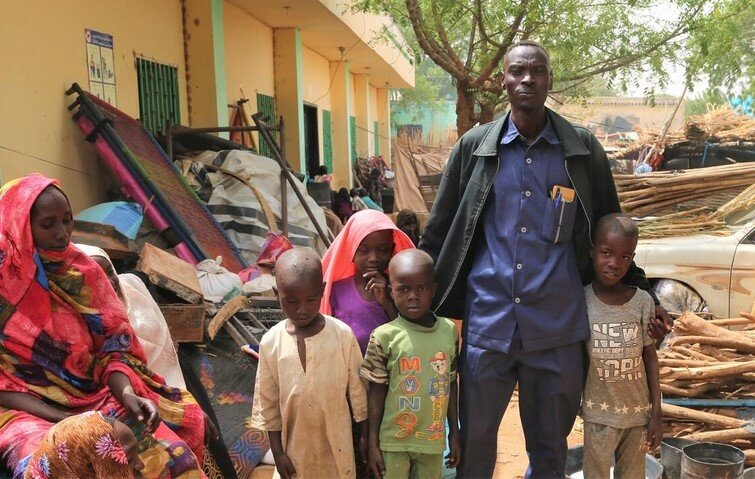
It’s more than 15 years since conflict forced Yahya Ishag Siyam to flee his home and seek refuge in the Krinding camps for internally displaced people on the outskirts of Geneina, the capital of West Darfur state in western Sudan.
The signing of a peace agreement in October 2020 brought fresh hopes that Yahya and millions of other displaced people in Darfur would soon return home and put the memories of conflict to rest after almost two decades.
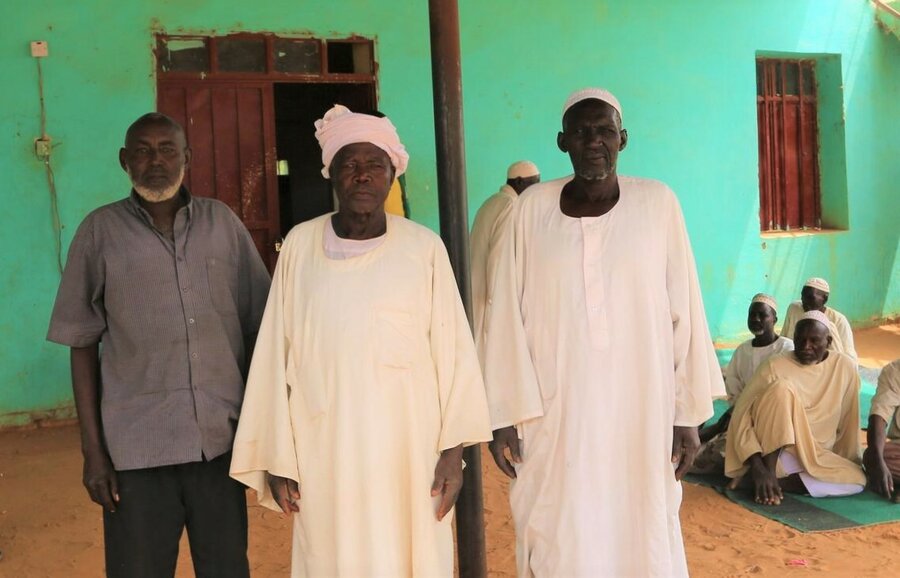
However, these hopes were short-lived. Intercommunal clashes broke out in West Darfur in January. More than 200 people lost their lives. So far this month a further 144 people have died, while more than 200 have been seriously injured.
Much of the violence in January centred around Krinding, where homes and property were damaged, forcing Yahya and thousands of others to leave everything behind and flee for their lives for a second time.
In a matter of days, over 100,000 people had fled from the surrounding areas and sought shelter in Geneina.
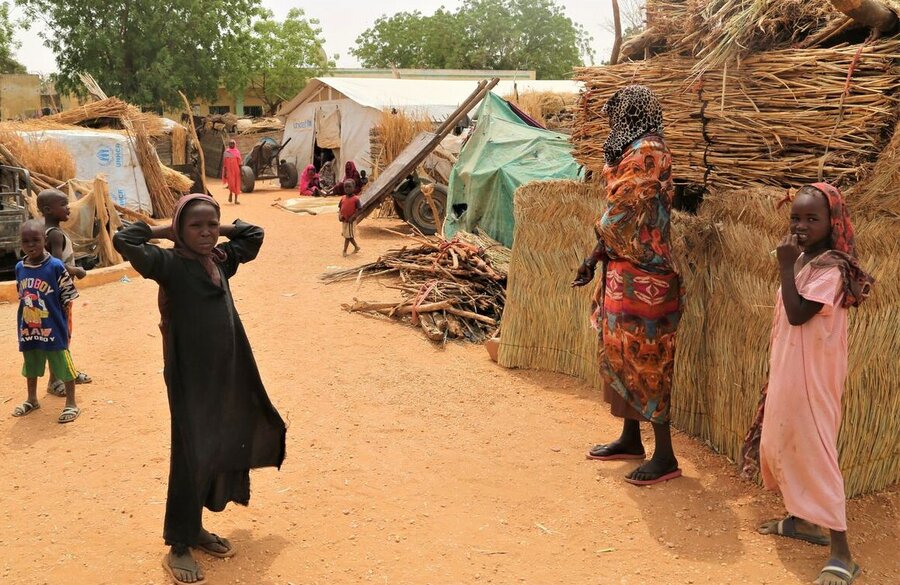
“It was terrible, I saw people grabbing their children and running with no idea where to go,” says Yahya, “I really don't want to talk about it because it reminds me of sad moments and unpleasant scenes.”
With nowhere to go, no money, clothes or food, Yahya and others crowded into schools, universities, and other government institutions across the city — anywhere they could find safety.
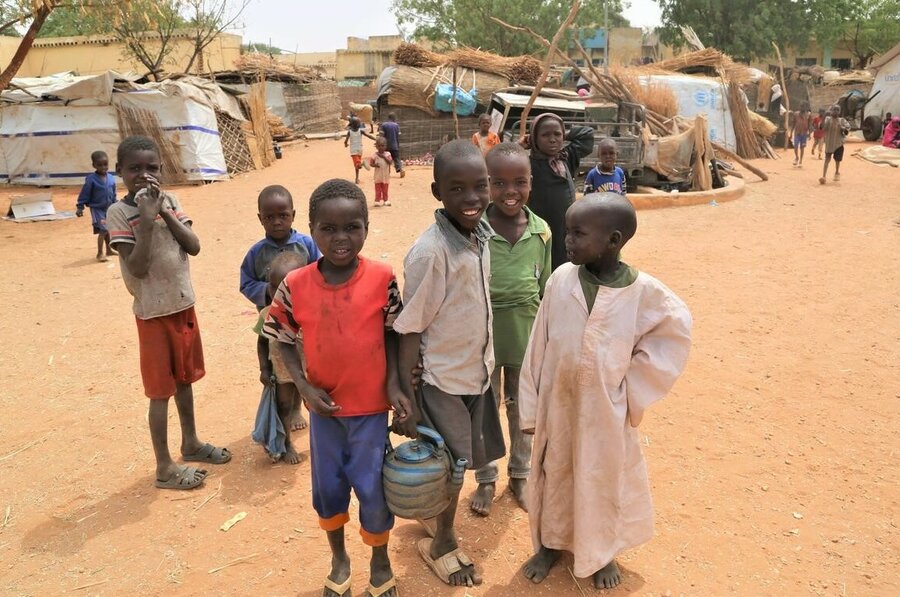
Samira, a young woman who also fled to Geneina from the Krinding camps, was desperately sifting through her crops which were burned during the clashes.
“I am now sieving and cleaning the partially burned sorghum to recover what is possible,” she says. “Hopefully we can survive on what we have left along with the food assistance from the World Food Programme.”
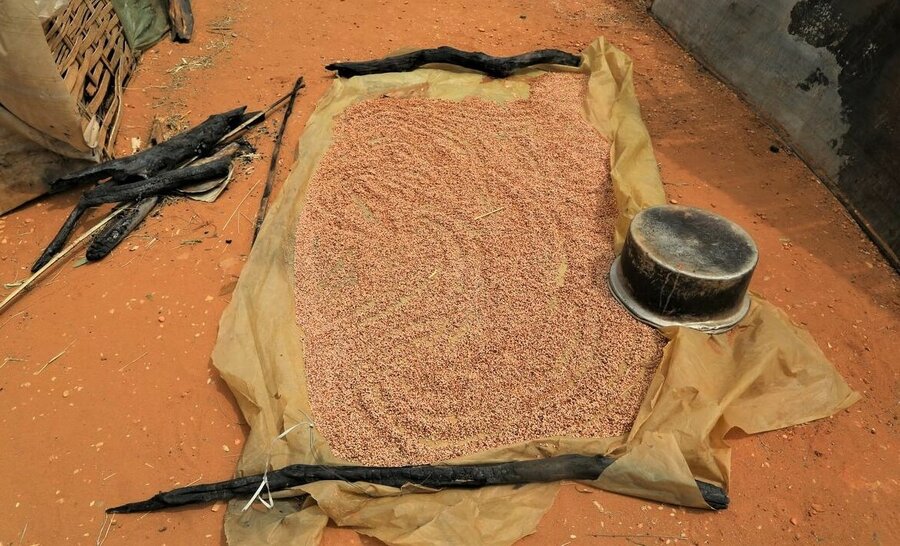
The World Food Programme (WFP) and other humanitarian partners responded immediately with emergency food assistance to help all conflict-affected communities, providing monthly food rations, such as sorghum, lentils, oil and salt to around 90,000 affected people in and around Geneina.
This assistance provided some relief until intercommunal fighting broke out once again at the beginning of this month.
Although insecurity brought about by the recent clashes has disrupted operations, WFP is on the ground in Geneina assessing needs and providing assistance to vulnerable people.
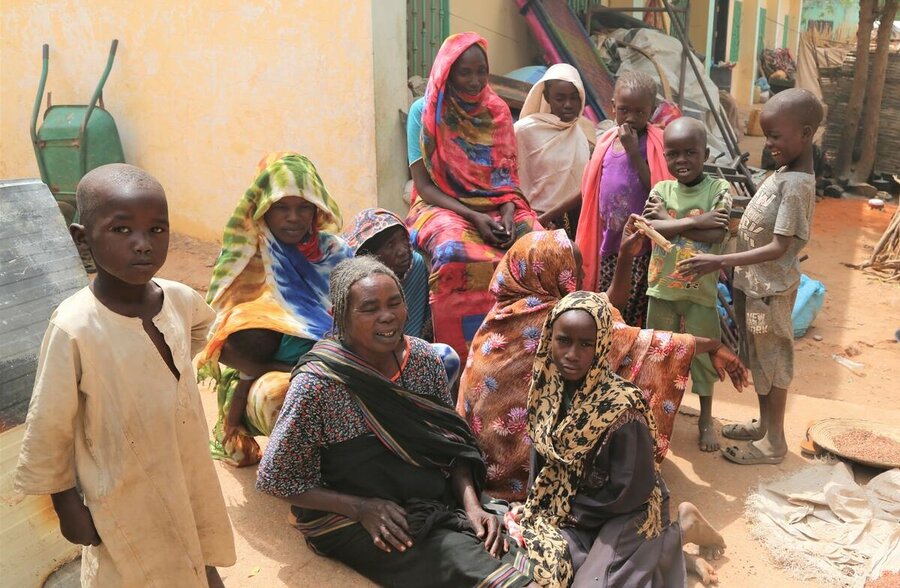
Humanitarian access to the conflict-affected areas is critical to ensure WFP can continue to provide food assistance to those in need.
Given the resurgence of violence in recent weeks, a durable solution is more urgent than ever. Having been displaced multiple times, not only from their hometowns but also from where they had sought refuge, Yahya and other internally displaced people recognize that emergency food assistance is not enough — lasting peace is the only solution.
“If people can return home they can start anew, farming their lands, raising livestock and feeding their families instead of depending on relief organizations,” says Yahya.
“We need support from the authorities to step in and help solve the root causes of this problem,” he says.
